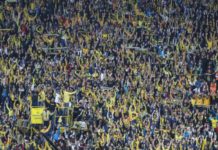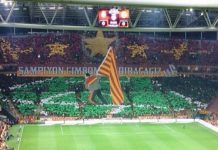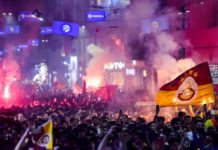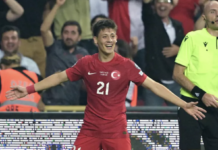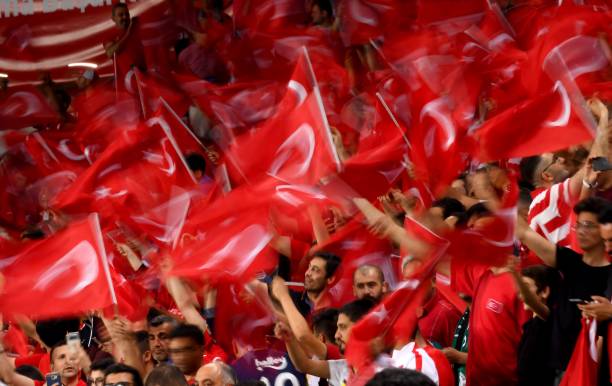
The Turkish Super Cup final erupted into controversy before kickoff, sparking a national debate over free speech and historical sensitivities.
In a packed Riyadh stadium, the match between Galatasaray and Fenerbahce was abruptly scrapped at the eleventh hour due to a disagreement about banners and T-shirts featuring Mustafa Kemal Ataturk, the revered founder of modern Turkey.
READ: Who is Arda Guler? The 18-year-old ‘Turkish Messi’ Wanted by Europe’s Biggest Clubs
The planned display of “Peace at home, peace in the world” – Ataturk’s famous words – and T-shirts bearing his image ignited tensions with Saudi authorities, who deemed them politically charged.
The Super Cup final held special significance this year as it coincided with the 100th year anniversary of the Turkish Republic which was founded by Ataturk.
Galatasaray and Fenerbahçe both played roles in the Turkish war of independence; support of the republic and Ataturk is part of the fabric of both clubs, it is an important part of their legacy and values.
It would have been an unforgivable act for the clubs to succumb to pressure and censor Ataturk on the 100th year anniversary.
Despite pre-arrangements with the Turkish Football Federation, Galatasaray and Fenerbahce refused to back down, sparking a late-night scramble amongst officials.
Both clubs had made their position to the TFF clear beforehand and were assured there would not be a problem.
Eventually, a joint decision to postpone the match was announced, leaving thousands of fans frustrated and questions swirling.
Reactions in Turkey were overwhelmingly in favour of both clubs who took a stand against the Turkish FA which was accused of selling out their values for a pay check.
The stance of both clubs was met with huge support as they turned down a huge payout in order not to turn their back on their principles.
The incident casts a shadow over Turkish football, already reeling from a recent league suspension following an on-field assault on a referee when former Ankaragucu president Faruk Koca assaulted a referee.
The Super Cup saga now poses a complex challenge for organizers to navigate political sensitivities, fan expectations, and tournament regulations. Finding a resolution that satisfies all parties may prove a daunting task, leaving the fate of the trophy up in the air.


